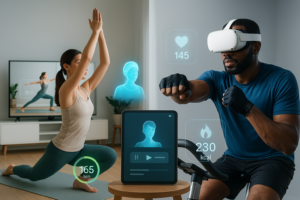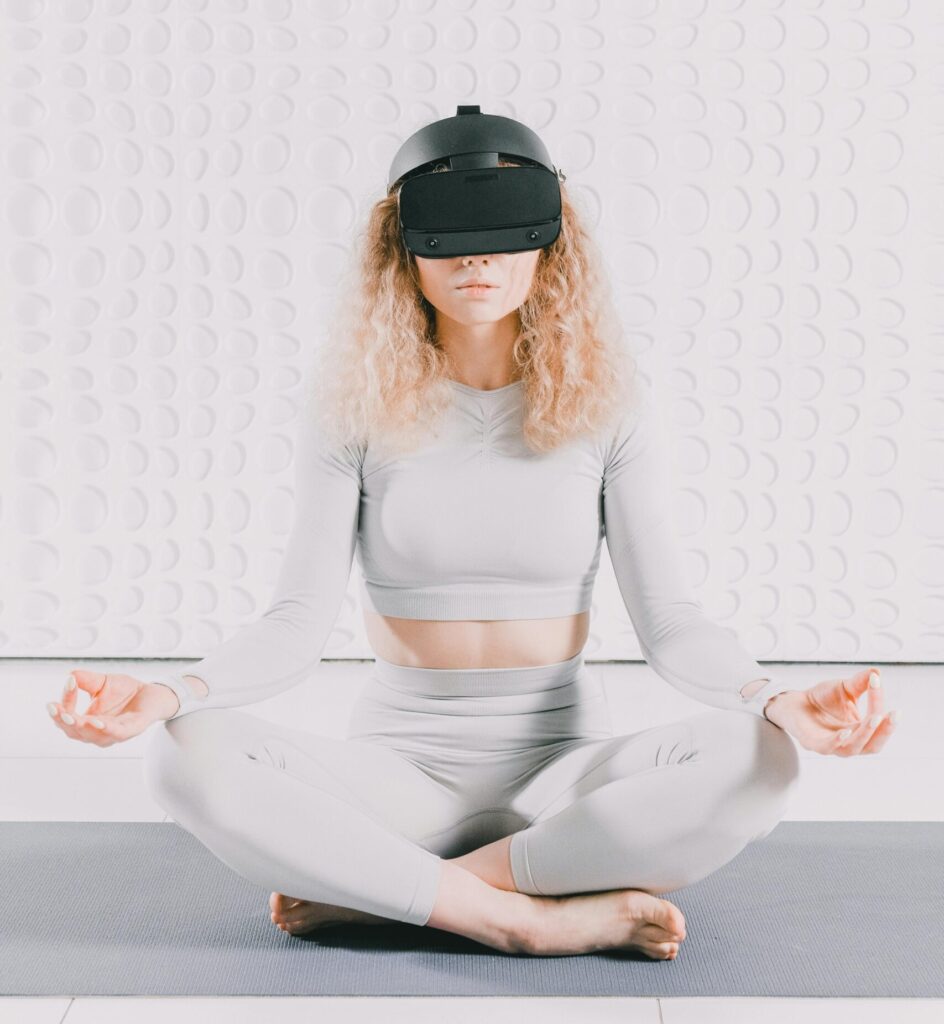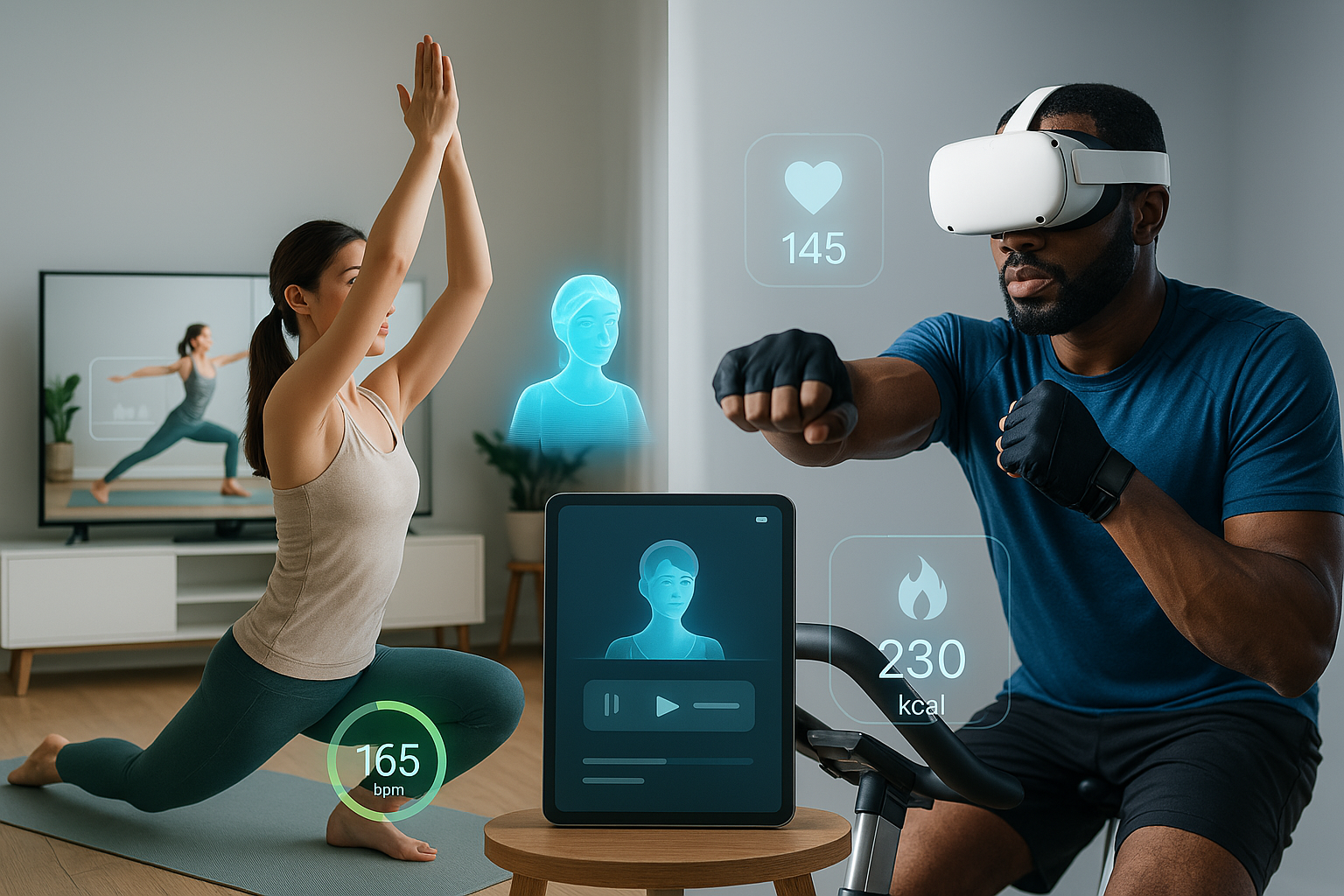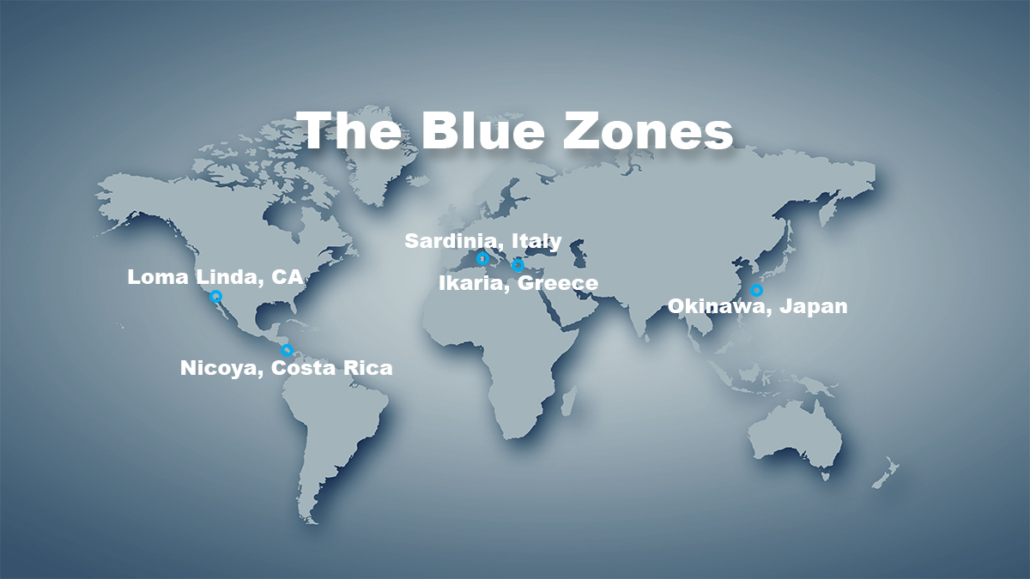The Rise of Virtual Fitness in a Post-Pandemic World
Virtual fitness platforms — digital ecosystems offering workouts, coaching, and community engagement from the comfort of your home.
With advancements in AI, wearable tech, and real-time streaming, these platforms are reshaping the future of fitness.

As consumers seek personalized, flexible, and accessible fitness solutions, virtual fitness is dominating trends across social media, app stores, and health blogs.
What Are Virtual Fitness Platforms?
Virtual fitness platforms are online-based services or mobile apps that deliver fitness training programs, live or on-demand workout classes, coaching, and progress tracking.
They eliminate the barriers of time, location, and equipment, giving users the freedom to stay fit anywhere, anytime.
These platforms cater to a variety of goals, from strength training and yoga to HIIT and mindfulness, making them among the best online fitness apps available today.
Key Features:
- Real-time or pre-recorded classes
- Integration with fitness trackers and wearables
- AI-based personal training suggestions
- Gamified challenges and leaderboards
- Community groups and virtual support
7 Virtual Fitness Platforms That Are Changing the Game
1. Peloton
Peloton started with smart bikes but evolved into a full-scale fitness platform offering cycling, running, bootcamp, strength, yoga, and meditation. Its live and on-demand classes, led by celebrity trainers, are streamed globally. Peloton’s integration with heart rate monitors and progress tracking tools makes it a powerful addition to home workout platforms.
Exclusively built for Apple users, this platform connects seamlessly with the Apple Watch to deliver curated workouts like HIIT, core, dance, and cooldowns. Its smart recommendations, real-time stats, and music integration elevate the fitness from home programs experience.
3. Centr by Chris Hemsworth
Focusing on holistic wellness, Centr combines fitness, nutrition, and mindfulness. With personalized programs, celebrity coach workouts, meal plans, and meditations, it offers an all-in-one lifestyle solution, tailored to different fitness levels. It’s one of the fastest-growing holistic wellness apps today.
4. Les Mills+
A digital version of the world-famous gym classes, Les Mills+ offers programs like BODYPUMP, BODYCOMBAT, and BODYFLOW. Certified trainers guide you through choreographed sessions designed for maximum burn and minimal boredom — ideal for anyone seeking premium virtual fitness platforms.
This free fitness app offers everything from bodyweight workouts to strength and mobility training. With a vast workout library, community engagement, and professional guidance, NTC is a go-to choice among the best online fitness apps.
6. FitOn
Offering unlimited workouts for free, FitOn features celebrity trainers like Gabrielle Union and Jonathan Van Ness. You can join group challenges, access fitness calendars, and sync your fitness tracker for deeper insights. It stands out in the fitness from home programs space.
7. Future
Future pairs you with a real personal trainer who creates customized weekly workouts based on your goals and feedback. Using Apple Watch and app integration, this high-touch platform delivers next-level AI-powered personal training.
Why Virtual Fitness Is Booming
The adoption of virtual fitness has surged due to:
Post-pandemic health awareness
Time-saving convenience
Increased interest in digital wellness trends
Flexibility for diverse fitness levels and lifestyles

According to a report by Statista, the global virtual fitness market is expected to reach $59 billion by 2027, highlighting its mainstream appeal and massive growth potential.
The Future of Fitness: How Virtual Platforms Will Shape Tomorrow
AI-Powered Personalization Platforms will increasingly use machine learning to design hyper-personalized fitness plans, making AI-powered personal training a standard feature.
Metaverse Workouts & VR Fitness Companies like Meta and Supernatural are already working on immersive VR fitness experiences, enabling users to exercise in 3D environments like outer space or tropical beaches. Expect VR fitness trends 2025 to go mainstream soon.
Integrated Wellness Ecosystems Future platforms will offer not just workouts but mental health tools, nutritional coaching, and wearable tech syncing for holistic well-being, building a new category of holistic wellness apps.
Corporate Wellness Integration Businesses will partner with virtual fitness platforms to provide employee wellness packages, boosting productivity and reducing healthcare costs.
Social Fitness Communities Expect more gamification, leaderboards, and team-based competitions, encouraging accountability and long-term engagement across all home workout platforms.
A Fitter, More Connected World
Virtual fitness platforms are not just a temporary fix but the foundation of a future-ready wellness culture. From personalized training to VR-powered yoga, the possibilities are endless. These platforms offer the convenience, customization, and community that modern life demands.
Stay ahead of the curve, explore these platforms, and transform your health journey — from your living room.
References:
















One Response